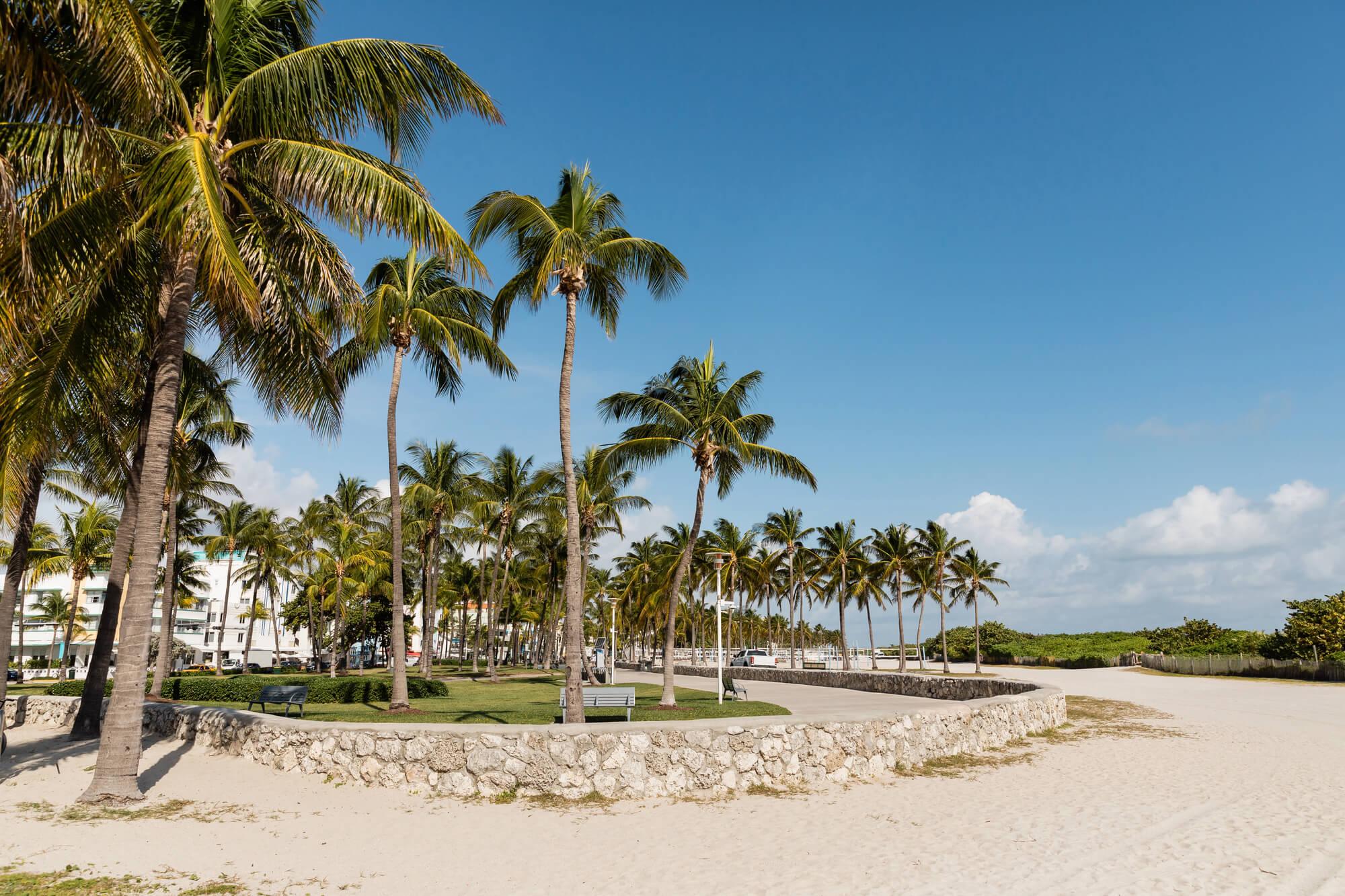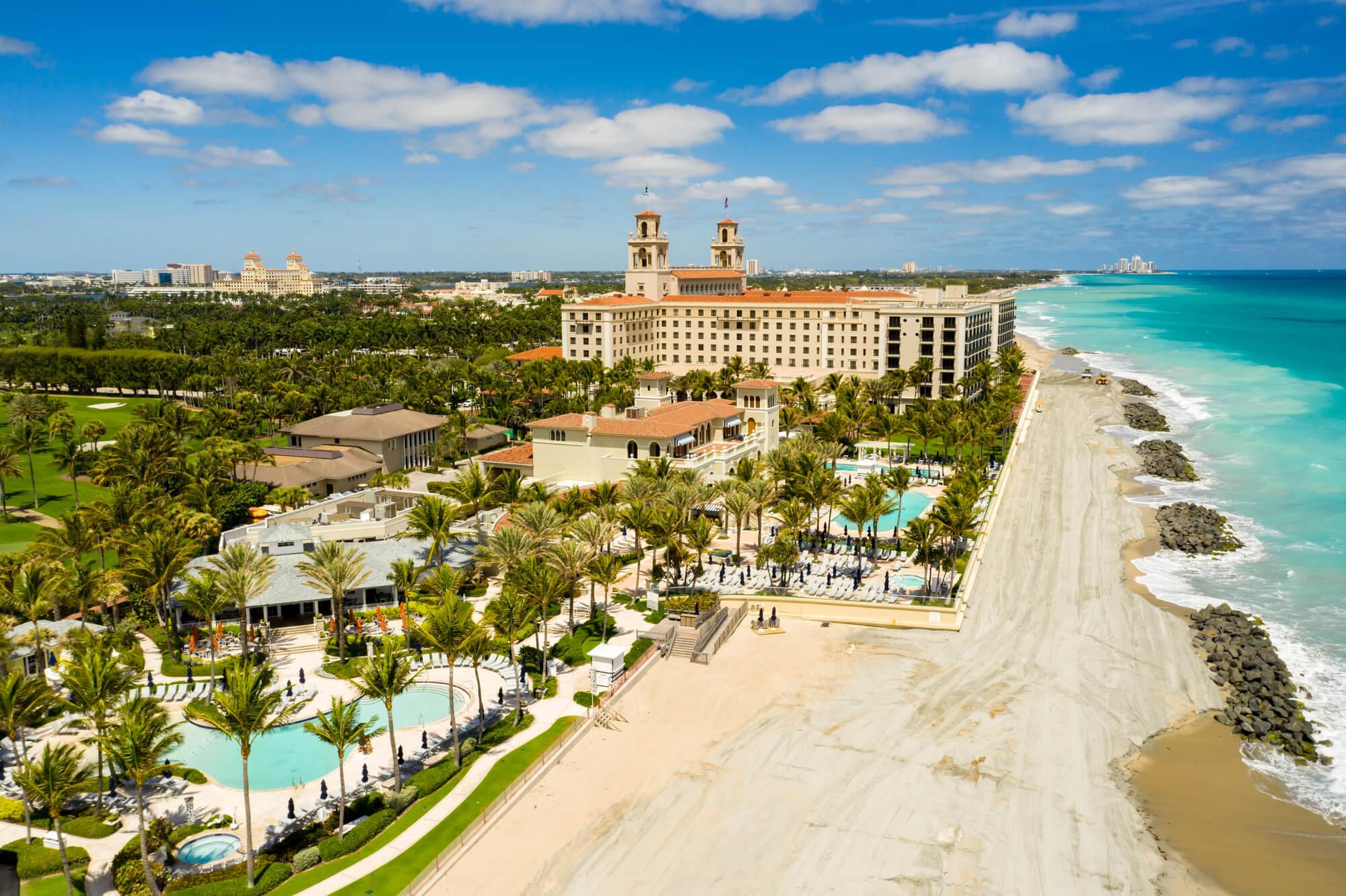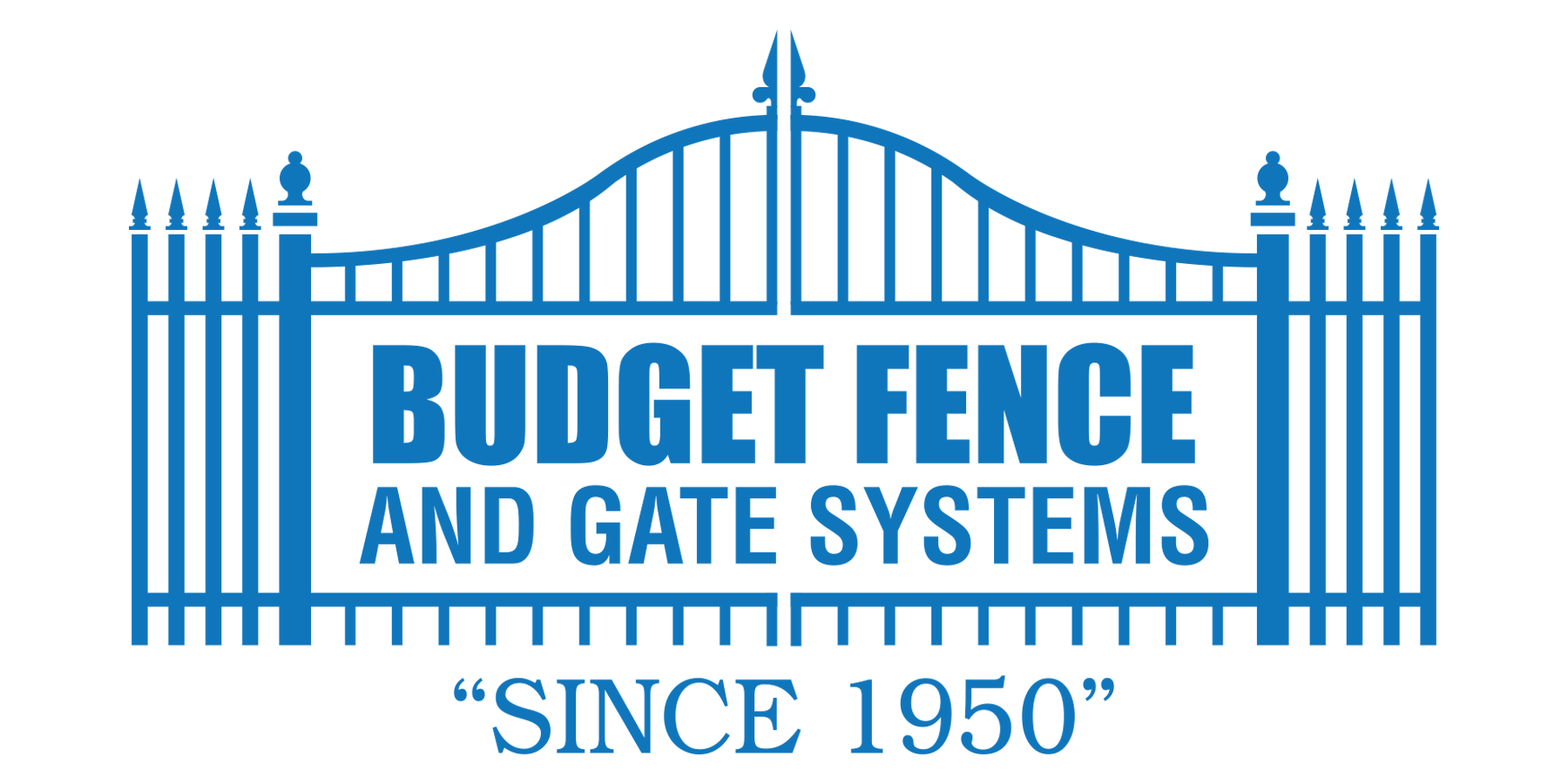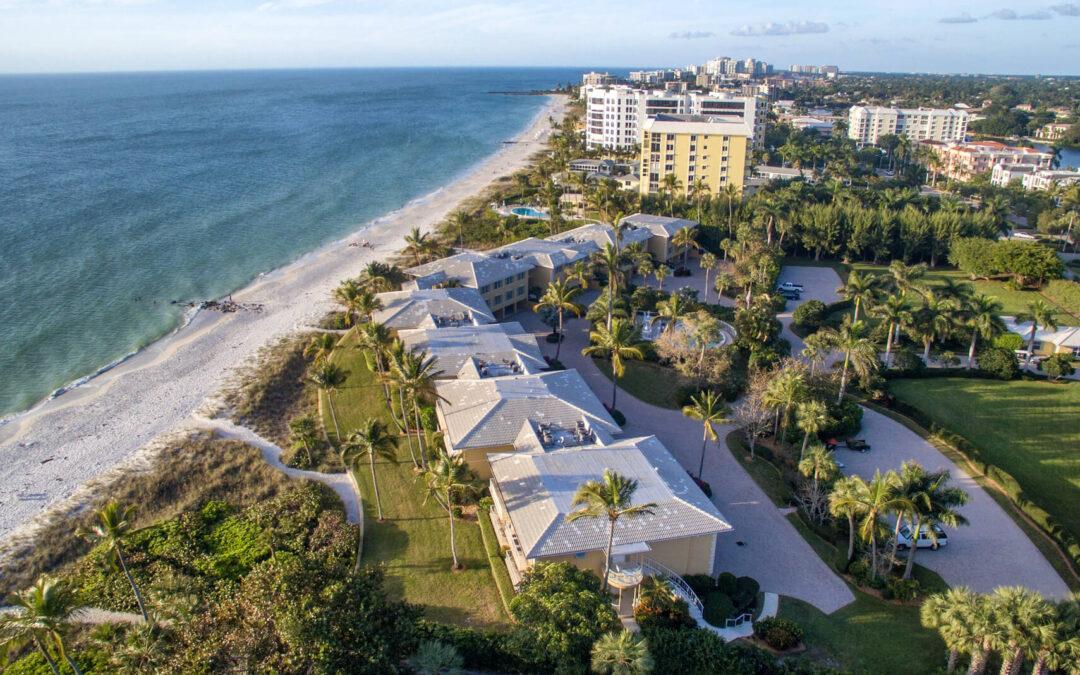Homes in Palm Beach, Florida, offer more than just beautiful scenery; they reflect a lifestyle centered around ocean views, breezy afternoons, and open-air living. It’s no surprise that more homeowners are building coastal-style homes to make the most of the area’s natural beauty. But building near the coast means making smart choices, especially when it comes to fencing.
The salty air and intense sun can wear materials down fast, so it’s important to find the best fence company near you so you can collaborate with them to find the best fence material that works best in a coastal environment.

Top 5 Fencing Materials for Coastal Homes
1. Aluminum Fencing
Aluminum fencing remains a top choice for coastal homes, particularly in places like Palm Beach, where salt air and heavy humidity are a daily reality. Unlike wrought iron, aluminum doesn’t oxidize or rust, making it a smart and sustainable option for coastal climates.
Its powder-coated finish enhances its durability and offers a sleek, modern appearance. You can find aluminum fences in various colors, picket designs, and heights, which allows for greater customization.
2. Vinyl (PVC) Fencing
Vinyl fencing is known for its durability and low maintenance. It doesn’t rot, warp, or splinter, making it suitable for humid coastal climates. Vinyl fences are available in multiple designs and colors, allowing homeowners to match their fences with their home’s exterior. While the initial cost might be higher, the longevity and minimal upkeep make it a cost-effective option in the long run.
3. Chain Link Fencing
Chain link fences, especially those with vinyl coatings, offer a practical solution for coastal properties. They provide security without obstructing views and are resistant to corrosion when properly treated. Chain link fences are also cost-effective and quick to install, making them a popular choice for both residential and commercial properties.
4. Wood Fencing
Wood fences offer a classic and natural look, enhancing the aesthetic appeal of coastal homes. However, in salty and humid environments, wood requires regular maintenance to prevent decay and insect infestation. Using pressure-treated wood and applying sealants can extend the lifespan of a wooden fence. Wood fences provide warmth and privacy for those willing to invest time in upkeep.
5. Composite Fencing
Composite fencing combines wood fibers and plastic, resulting in a material that’s resistant to rot, insects, and UV rays. It’s an eco-friendly option that mimics the appearance of wood without the associated maintenance. Composite fences are durable and can withstand coastal weather conditions, though they come at a higher price point.
Fence Height and Privacy: What to Know
How Tall Should a Coastal Fence Be?
Standard residential fences are 4–6 feet tall, but the height you choose can influence both privacy and wind resistance. Taller fences offer more privacy but may need reinforced posts in windy areas. Always check local regulations before building.
Privacy vs. View
Coastal homes often feature stunning views. If maintaining visibility is important, aluminum or vinyl picket styles may be best. If privacy is the priority, opt for taller solid panels or wood.

Coastal Weather Challenges: What Fences Need to Survive
Salt Air and Corrosion
Salt in the air accelerates corrosion. Aluminum and vinyl resist this naturally, while wood and chain link need protective coatings.
Wind Load Resistance
Coastal storms can be rough. Materials like aluminum can be designed to allow wind to pass through, reducing pressure. Solid panel fences like vinyl or composite should be reinforced to prevent damage.
Sun and UV Exposure
Constant sun exposure can fade or degrade some materials. Look for UV-resistant vinyl or composite products to reduce color loss and brittleness.
Fence Installation Tips for Coastal Areas
Choose Galvanized or Stainless Steel Hardware
Even if your fence is rust-resistant, the hardware holding it together matters. Use stainless or hot-dip galvanized fasteners to prevent rust stains or failure.
Proper Anchoring Matters
Sandy or soft soils require deeper posts and possibly concrete footings. In areas prone to flooding, raised post bases or alternative drainage solutions might be needed.
Hire Local Experts
Contractors experienced with coastal installations know how to build for durability. They’ll also be familiar with local code, which often includes specific hurricane-related standards.
Maintenance Tips to Extend Fence Lifespan
Annual Inspection
A thorough annual inspection is one of the best ways to keep your fence in good condition year-round. Look for early signs of wear, like rust spots, loose screws, cracks, warped panels, and discoloration. These small issues may seem minor at first, but can lead to more expensive repairs if ignored.
Don’t forget to check the posts and base for stability—coastal moisture can loosen footing over time.
Rinse Your Fence Regularly
Salt air buildup is unavoidable along the coast, especially in places like Palm Beach. Rinsing your fence with a garden hose every few weeks removes salt deposits that contribute to corrosion and staining. This is especially important for aluminum and chain link fences, which can develop surface buildup quickly in salty air.
Repaint or Reseal When Needed
Wood fences need to be resealed every one to two years to protect against moisture and UV damage. Keep an eye out for fading, peeling, or exposed grain; these are signs it’s time to recoat. Aluminum fences, while low maintenance, may need paint touch-ups if scratched or chipped. A quick patch can prevent oxidation and keep your fence looking fresh. Regular upkeep extends your fence’s life and keeps it visually appealing.
Comparing Cost Over Time: Long-Term Value Matters
Upfront vs. Lifetime Costs
It’s easy to focus on initial pricing, but the smartest choice often comes from understanding long-term value. Aluminum and vinyl fences, for instance, may cost more at the start, but they won’t need staining, sealing, or frequent repairs. Wood may be cheaper to install, but it adds ongoing maintenance expenses.
Repairs and Replacements
Materials that resist corrosion and fading reduce the need for repairs. Coastal weather is unforgiving; saving money now could mean spending more down the line if your fence deteriorates quickly.
Matching Fence Styles to Coastal Architecture
Modern Beach Homes
Aluminum fencing pairs beautifully with contemporary designs. Its clean lines and neutral finishes add security without pulling attention away from the structure.
Key West Style
PVC picket or scalloped-top vinyl fences complement the charm of breezy porches and pastel siding. Choose white or light tones to keep things classic.
Coastal Cottages
Wood and composite materials work well here. Horizontal slat styles and rich stains provide a cozy, lived-in feel that suits smaller beach homes.
The Role of Fencing in Property Insurance and Resale Value
Boosting Curb Appeal
First impressions matter. A well-maintained fence adds polish and symmetry to your landscape. Buyers are more likely to view a fenced home as cared for, secure, and private—especially in beach towns.
Potential Insurance Benefits
Some insurers offer discounts for fenced-in yards. This is more common when fencing contributes to safety, such as enclosing pools or deterring wildlife.
Coastal-Friendly Fence Accessories
Post Caps and Solar Lights
Post caps help protect fence tops from water seepage. Solar lights built into posts can enhance safety and curb appeal after dark, no wiring required.
Reinforced Hinges and Latches
Salt air wears down metal quickly. Upgrading to marine-grade hinges and locks can extend the life of gates and ensure smoother function over time.
What to Avoid in Coastal Fencing
Plain Steel and Iron
These materials rust quickly in salty air, even with coatings. Although they may be strong, they’re not suited to coastal environments without serious upkeep.
Untreated Wood
Moisture and salt break it down quickly. If you choose wood, it should be pressure-treated, sealed, and monitored yearly.
Overly Solid Designs
Completely solid fences can act like a sail during wind events, placing pressure on posts. Choose semi-private styles that allow some airflow.
HOA Considerations for Coastal Homes
Know the Rules Before You Build
Many coastal communities have HOA guidelines on fence height, style, and materials. Before investing, double-check these restrictions to avoid issues or fines.
Preferred Materials
Some HOAs list preferred or required materials, often aluminum or vinyl, for visual consistency. They may also have color palettes or picket spacing rules.
Choosing a Fence That Balances Form and Function
Your fence should look good, feel secure, and withstand coastal elements. Every material offers different strengths; some give you better views, others more privacy. The best choice depends on your daily needs and how much time you want to spend on upkeep.
Would you rather rinse your fence occasionally or reseal it yearly? Do you need privacy from neighbors or prefer an open view of the water? These questions will help narrow your decision.

Looking for the Best Fence Company Near You?
Looking for experienced pros to install the perfect coastal fence? Reach out to Budget Fence and Gate Systems for expert installation, tailored recommendations, and materials that last in salt-heavy environments.
Our team understands the unique challenges of coastal living and provides solutions that fit your property’s needs. Whether you’re fencing a beachfront yard or adding privacy to a side lot, they offer dependable craftsmanship and a variety of materials suited for South Florida. Get in touch today and feel confident knowing your fence will look great and hold strong for years to come.


Recent Comments